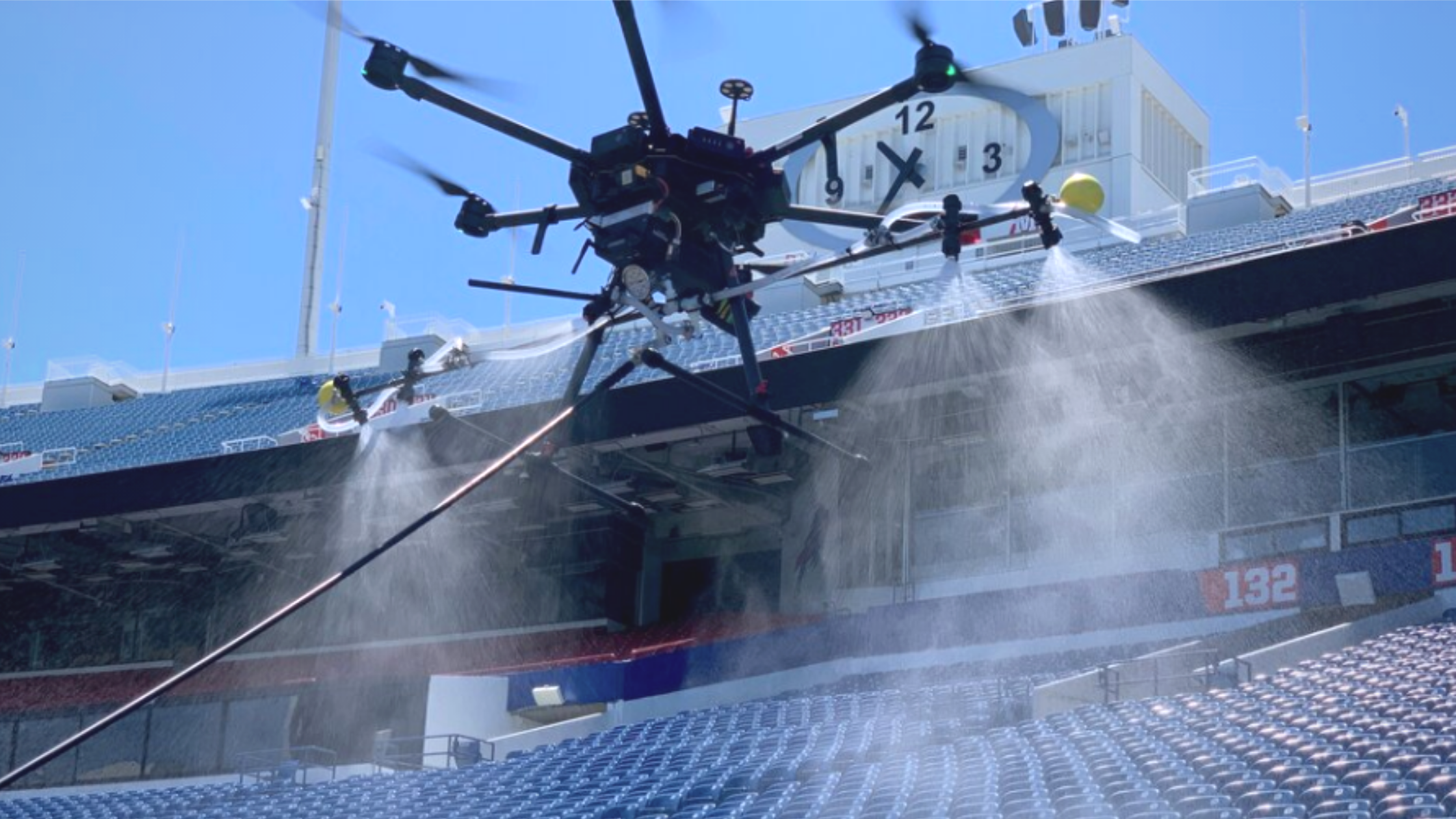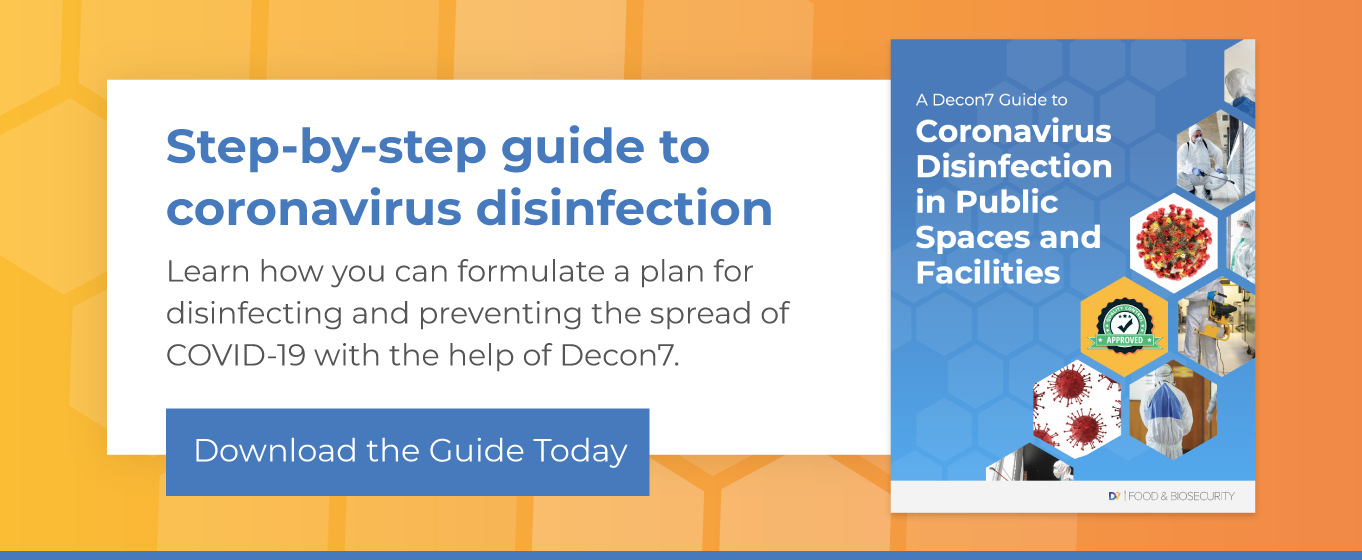
Preventing the spread of COVID-19 as we strive to return to normalcy requires a new level of disinfection, both indoors and outdoors. For outdoor sporting and entertainment events, disinfecting large seating areas can be costly and time-consuming. Fortunately, innovative companies and venue managers are coming up with innovative methods to protect fans, performers, and players.
Disinfectant Application with Drones
One enterprising company based in Buffalo, New York, has started using drones to apply disinfectants to large outdoor seating areas. EagleHawk, a startup, developed new technology and techniques in response to COVID-19, and has already showcased its large-scale disinfecting method to the home stadium of Buffalo’s minor league baseball team, the Buffalo Bisons.
For large outdoor applications, the company uses two drones. One drone manages the hose and keeps it clear of obstructions while the other controls the sprayer nozzle. What used to take a team of people with multiple sprayers can now be done with a couple skilled drone operators and a single sprayer.
The company has developed other systems specifically designed for indoor venues that utilize a single drone and pilot. EagleHawk isn’t the only company that came up with the concept of applying disinfectant from a drone but EagleHawk has perfected a tethered based system, which is not limited by small onboard liquid storage tanks as with other drones in the market.
Choose the Right Disinfectant
One of the benefits of this approach is that it requires fewer people to apply the disinfectant, but the disinfectant must still be safe to use. If it’s being applied outdoors where products may be carried to other areas, it’s critical to choose a disinfectant that has low toxicity. Any products that spread in the air could be inhaled or touched by bystanders, which means it’s important to clear the area, as well as to choose products that are not harmful to people.
The products you choose should also be safe for any materials they land on, both in the stadium and nearby, including metal bleachers, rubber or plastic seats, metal handrails, and so on. Evaluate the corrosivity of any disinfectants you are considering to ensure no damage will be caused by the application process.
Choose a product that is easy to mix at the right concentration and apply with a sprayer. Many disinfectants are shipped as concentrates and must be diluted. Some products come in multiple parts that must be combined before they are applied. Whatever products you select, make sure the people applying them know how to dilute or mix the chemicals to ensure the proper concentration. It’s also possible to use specialized sprayers that do the mixing for you.
Consider D7 for Large-Scale Disinfection
D7 was originally developed in response to a search for products that could decontaminate large areas after a chemical or biological terrorism event. It is suitable for application to large outdoor areas using a drone applicator or foam sprayer. The product has low toxicity and corrosivity, which enable it to be safely used on numerous types of surfaces and with minimal PPE required. Because D7 is already positively charged, there is no need to apply it through an electrostatic sprayer. When sprayed through a regular sprayer, the liquid particles will be evenly distributed and attracted to the surfaces throughout the stadium rather than drifting away.
Decon7, the company that commercialized D7, is now a member of the National Center for Spectator Sports Safety and Security, an organization that is committed to studying and practicing safety and security at sporting events. Dr. Tucker recently spoke about D7 at their annual conference and you can watch a recording of his session on Disinfecting for Coronavirus and Other Contagions. Through this membership, we hope to contribute to the organization’s mission and increase awareness about D7 among venue managers and other key stakeholders.
D7 is on the EPA’s list of disinfectants for coronavirus, which means it’s approved for use to help prevent the spread of COVID-19. Although all products on this list are effective against coronavirus, they are not all the same when it comes to log kills. D7 has a 6-log kill or higher, compared to some other products that might have only a 3-log kill, eliminating only 99.9% of viruses. In addition to killing viruses, D7 is also effective against a range of bacteria, further protecting arena occupants from the spread of germs.
To learn more about D7 and the many ways it can be applied, download our free Product Overview Guide today.

